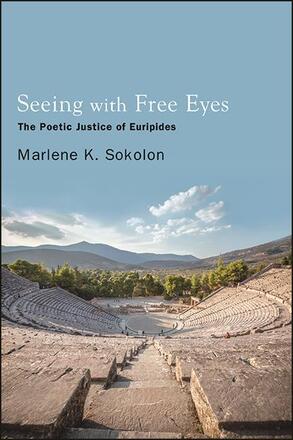
Seeing with Free Eyes
The Poetic Justice of Euripides
Alternative formats available from:
Examines the ideas of justice in Euripidean tragedy, which reveals the human experience of justice to be paradoxical, and reminds us of the need for humility in our unceasing quest for a just world.
Description
Responding to Plato's challenge to defend the political thought of poetic sources, Marlene K. Sokolon explores Euripides's understanding of justice in nine of his surviving tragedies. Drawing on Greek mythological stories, Euripides examines several competing ideas of justice, from the ancient ethic of helping friends and harming enemies to justice as merit and relativist views of might makes right. Reflecting Dionysus, the paradoxical god of Greek theater, Euripides reveals the human experience of understanding justice to be limited, multifaceted, and contradictory. His approach underscores the value of understanding justice not only as a rational idea or theory, but also as an integral part of the continuous and unfinished dialogue of political community. As the first book devoted to Euripidean justice, Seeing with Free Eyes adds to the growing interest in how citizens in democracies use storytelling genres to think about important political questions, such as "What is justice?"
Marlene K. Sokolon is Associate Professor of Political Science at Concordia University, Canada. Her books include Political Emotions: Aristotle and the Symphony of Reason and Emotion.
Reviews
"…Sokolon's book succeeds in conveying the many, variegated, and indeed related ways that Euripidean tragedy explores questions of justice on the thematic and discursive level … Impressively, Sokolon handles both the primary material and ample secondary scholarship with proficiency, while also bringing her background in political science to bear." — Review of Politics